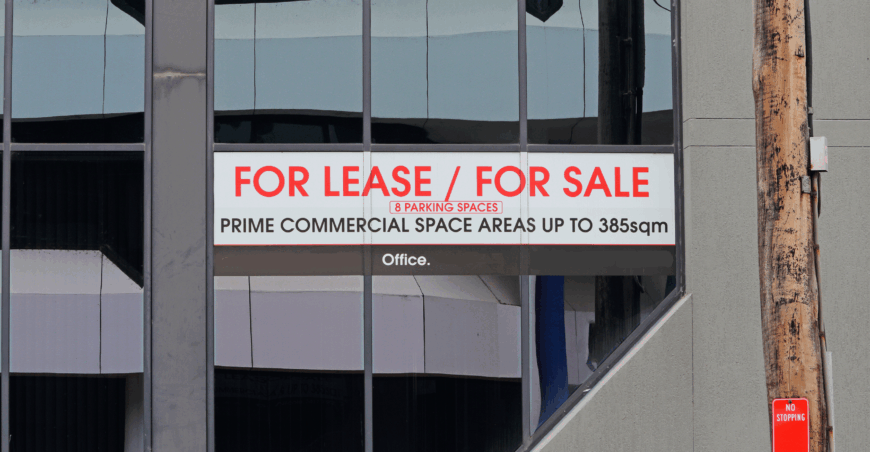When businesses reach the stage where they need office, retail, or industrial space, one of the most important decisions they face is whether they should be buying or leasing commercial real estate. Both options have clear advantages, but they also come with trade-offs that can affect cash flow, growth opportunities, and long-term stability. The right choice depends on your business goals, financial situation, and the market conditions in your area.
Let’s break down the key considerations that business owners should weigh when deciding between buying and leasing.
The Case for Buying Commercial Real Estate
Owning commercial property can be a powerful wealth-building strategy for business owners.
1. Building Equity and Long-Term Value
Every mortgage payment builds equity in an appreciating asset. Over time, property ownership can be one of the most valuable components of a business owner’s portfolio. Instead of paying rent that disappears each month, ownership allows you to build wealth and benefit from rising property values.
2. Stability in Costs
When you own, you aren’t subject to unpredictable rent increases. Property taxes and maintenance costs may fluctuate, but you’re insulated from market rent spikes that can squeeze tenants. This predictability can make long-term financial planning easier.
3. Control Over the Property
Ownership gives you the ability to customize the space for your business without a landlord’s restrictions. Need to expand, reconfigure, or make specialized improvements? You can make those decisions without negotiating terms for leasing commercial real estate.
4. Tax Advantages
Ownership opens the door to deductions on mortgage interest, depreciation, and other expenses, which can significantly reduce taxable income. For many business owners, these benefits improve overall ROI.
But buying comes with its downsides. The upfront capital required for a down payment, closing costs, and build-out can be substantial. Real estate ownership also ties up funds that might otherwise go toward business expansion, staff, or operations. And if the property’s value declines, you carry that risk.
The Case for Leasing Commercial Real Estate
Leasing often makes sense for businesses that prioritize flexibility and liquidity.
1. Lower Upfront Costs
Leasing requires far less initial capital. Security deposits and build-out costs are typically a fraction of the down payment needed to purchase. For businesses in growth mode, this frees up money for hiring, marketing, or scaling operations.
2. Flexibility to Relocate or Expand
Business needs change, sometimes quickly. Leasing makes it easier to upsize, downsize, or relocate as your company grows or shifts focus. You won’t be locked into a property that no longer fits your needs.
3. Reduced Responsibility
In many instances of leasing commercial real estate spaces, the landlord is responsible for major repairs, maintenance, and structural improvements. This takes the burden of property management off your shoulders, allowing you to focus on running your business.
4. Access to Prime Locations
Leasing may allow you to secure space in high-traffic or prestigious locations that would be cost-prohibitive to purchase. For retail and medical tenants, location can be the key driver of success.
However, leasing has its drawbacks too. Rent payments build no equity, and you’re exposed to the risk of rising rents when your lease is renewed. You’re also subject to landlord decisions about property use, maintenance, and future redevelopment.
Key Questions to Ask Yourself
When weighing buying vs. leasing, ask these questions:
- What’s my cash flow situation?
If you have strong reserves and predictable revenue, buying may be within reach. If not, leasing may be safer.
- How long do I plan to occupy this location?
Ownership makes more sense if you plan to stay 7–10+ years. If your growth path is uncertain, leasing keeps you agile.
- How important is flexibility?
If your business could double in size or change direction, leasing reduces the risk of being tied to an ill-fitting property.
- Do I want to invest in real estate as part of my wealth strategy?
Ownership blends your business and investment goals. Leasing keeps them separate.
- What are the local market dynamics?
In some markets, buying is cost-effective compared to leasing; in others, the math may favor renting.
Hybrid Approach: Sale-Leaseback and Owner-User Opportunities
There are also hybrid strategies worth considering:
- Owner-User Purchase: Buy a property for your business, occupy part of it, and lease out the rest to generate income.
- Sale-Leaseback: If you own a property, selling it and leasing it back can free up capital for growth while keeping your location stable.
These strategies allow business owners to capture some of the benefits of both leasing and ownership.
Buying vs. Leasing Commercial Real Estate: Which Strategy Makes Sense?
There isn’t a one-size-fits-all answer. Buying offers long-term financial rewards, stability, and control, but requires more capital and carries more risk. Leasing provides flexibility, liquidity, and access to prime locations, but at the cost of equity and long-term stability.
Ultimately, the best decision depends on your company’s stage, growth trajectory, and financial goals. The right strategy today might not be the same five years from now.
At ICRE Investment Team, we work with business owners every day to navigate these decisions – evaluating the numbers, the market, and the vision for your company’s future. Whether you’re considering buying, leasing, or exploring a hybrid strategy, our team is here to help you align your real estate with your long-term success.
















